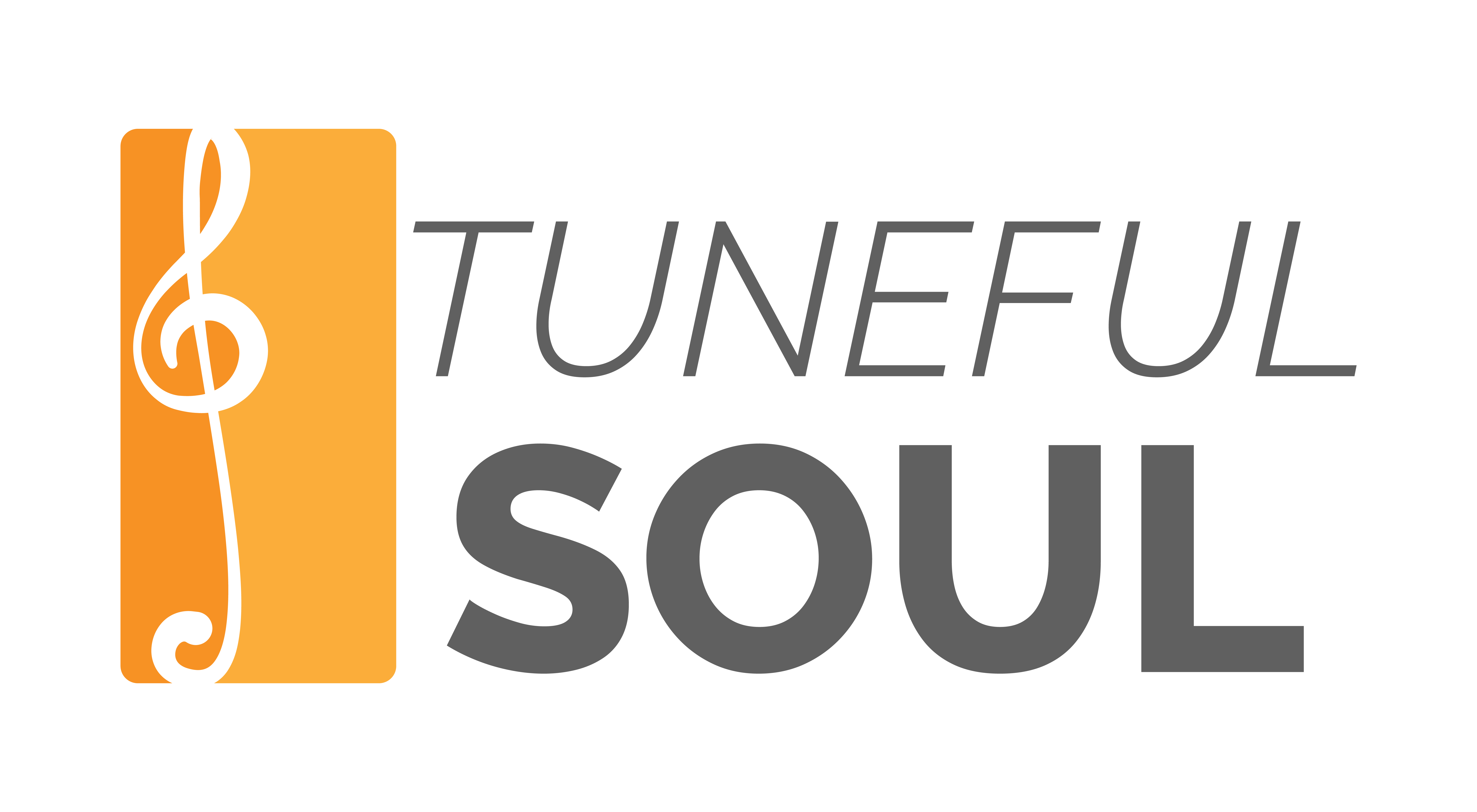Banned Beats: 30+ Stories of Popular Songs Censored For Many Reasons
What’s the world of entertainment without controversy? It basically forms the basis of the industry itself! Day in and day out, we go from one story of a celeb doing this or acting some type of way to another; it never ends. And, sometimes, it might not be just about what they do personally; it could also be some of the work they put out there. That’s why cancel culture exists; oftentimes, it’s not just canceling the famous star; it also extends to their songs. That’s right, some of the artistic works these entertainers have released get censored and ultimately banned, and you won’t believe why. From controversial lyrics to videos deemed offensive by religious organizations, here are the 40 songs that have been dubbed forbidden.
Imagine by John Lennon
If we were to name the most influential music groups of all time, The Beatles deserve a spot on our list. All four members did a lot for music as a collective and as individual artists, one of them being John Lennon. He had 25 number-one hits on the US charts.
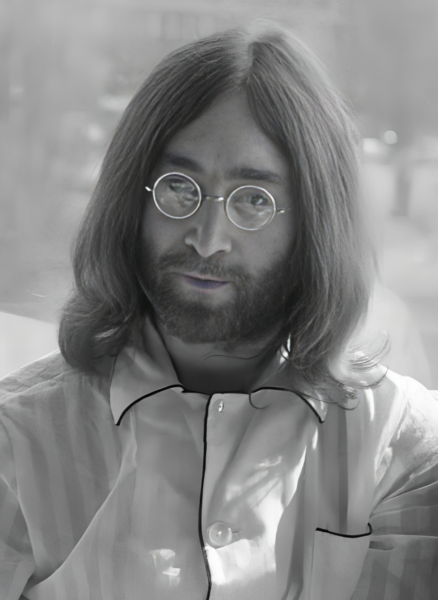
He had a lot of solid solo tracks, one of them being Imagine. The soft rock and pop song was a ballad lauded by many critics, but many others didn’t have the same stance. People took the lyrics too deeply and saw some of the words as “blasphemous” and “unpatriotic.”
Like A Prayer by Madonna
For many of the songs we’ve seen so far, the lyrics caused all the controversy. The songs themselves weren’t that bad, but for this one, the music video got many people riled up, and we mean really riled up. We can’t say we’re surprised; we’re talking about Madonna.
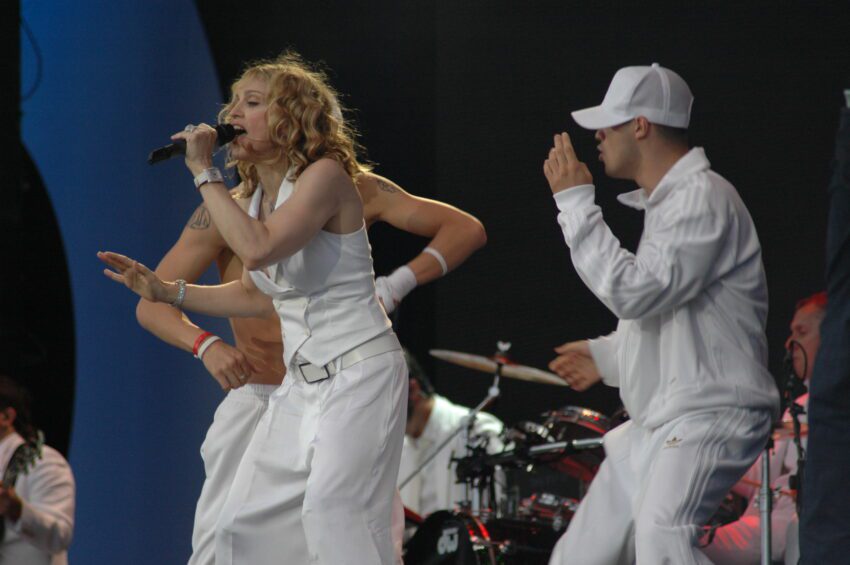
The singer is known for doing many controversial stuff, but this one takes the cake out of them. No kidding, guys, the religious organization that deemed the video insulting even encouraged people to start protests and to have the music video boycotted!
Hit ‘Em Up by 2Pac
Getting into this article, it was pretty obvious we’d have loads of rap songs making this list. There’s just been way too much controversy about the genre of music as a whole, talk less of the songs themselves, another example being a 2Pac hit.
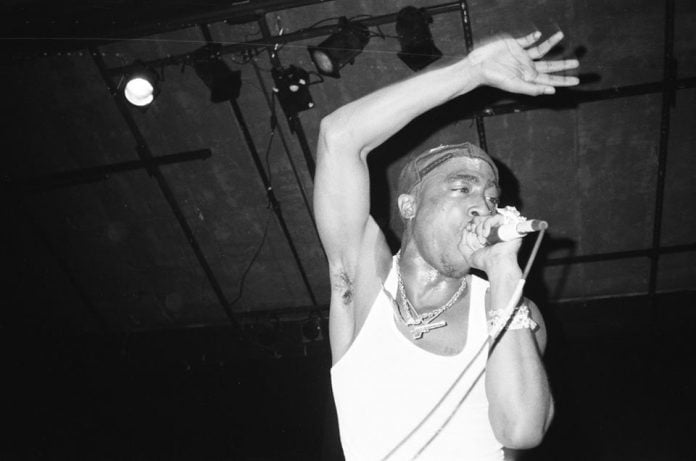
The legendary rapper had a lot of memorable hits (our absolute favorite being California Love) that weren’t centered on ending his enemies and their whole bloodline, unlike Hit ‘Em Up. It’s somewhat disturbing and has been dubbed one of the most infamous diss tracks ever.
The Real Slim Shady by Eminem
Anyone with the slightest knowledge about rap music in its earlier days and even until the 2000s should know it wasn’t the friendliest form of music. Many of the lyrics were often prone to criticism, especially those spat out from Eminem’s mouth.
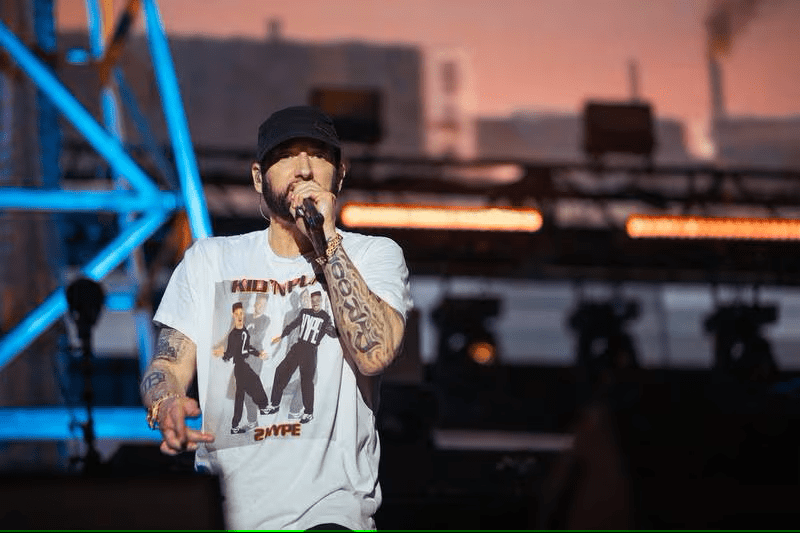
Sometime in 2000, Eminem blessed us with one of his biggest and most controversial hit songs, The Real Slim Shady, as a nod to his alter ego of the same name. He confronts his haters in the song, taking jabs at Will Smith and Christina Aguilera, saying a lot of stuff people don’t find very… let’s just say, friendly.
Lola by The Kinks
Listening to some of these songs or watching their music videos, we could have probably easily guessed why people would find them offensive or why they would be censored. Some of them, not all of them, especially not this 70’s song.
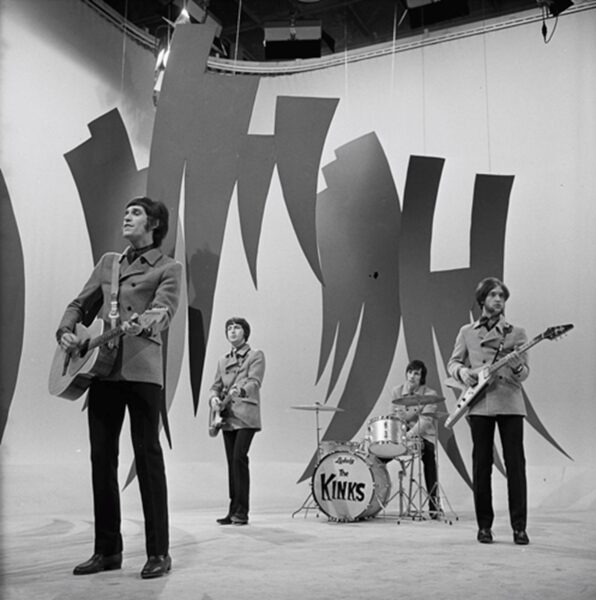
It’s about the relationship between a guy and a lady who’s really a transvestite. But, shockingly, that wasn’t why BBC banned this song, no. It was because the song included the words “Coca-Cola,” which was against their product placement policy. Wow.
Juicy by Notorious B.I.G.
How about a song that makes people believe one of the biggest rappers of all time might have been psychic? Yes, folks, that’s Juicy by the legend himself, Notorious B.I.G, and it was all because of a single line.
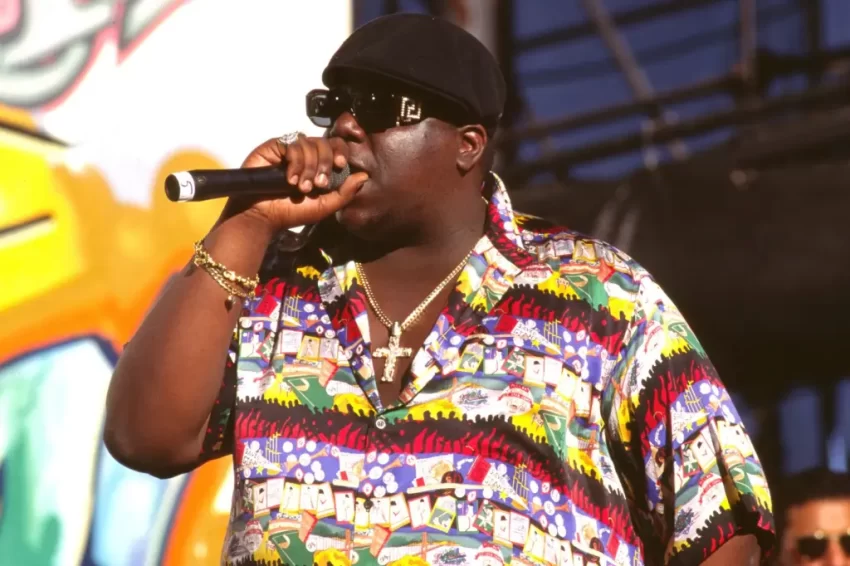
The 9/11 attacks didn’t just rock America but the world as a whole. So the fact that this hip hop artist released a song with the lyrics “Time to get paid, blow up like the World Trade” over seven years before the actual incident went down didn’t sit well with people, causing it to be censored.
LoveGame by Lady Gaga
Let’s give the rappers a break, guys. Sure, they weren’t big on filtering their lyrics and content, but they weren’t the only ones prone to controversy. Pop stars were also, with Lady Gaga, the pop legend, having loads under her belt.
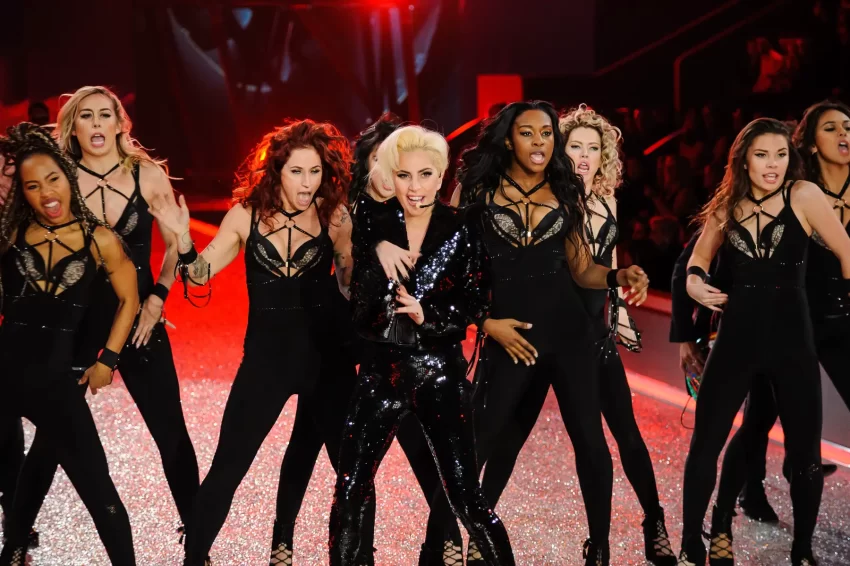
Unlike the other tracks we’ve seen so far having the reason for their ban being blasphemy or brutality, LoveGame was a bit different, very different, actually. It was censored from TV in loads of countries for being deemed overtly raunchy, which, for the time, probably was.
Physical by Olivia Newton-John
All these songs have caused a lot of stir for their respective reasons, but none so far were the single reason why the artist’s image was altered. Imagine having just one work of art having that much effect on the trajectory of one’s career!
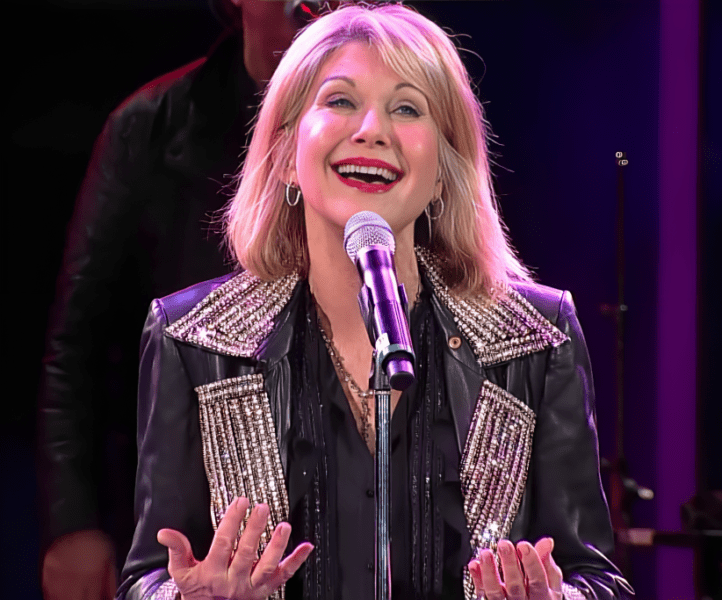
That was the case with the 1981 hit song Physical by Olivia Newton-John. The song immediately changed her image for viewers from a clean star to a sexy and assertive musician, censored in many places for being too provocative for the time.
Puff The Magic Dragon by Peter, Paul and Mary
The government is a serious authority guy; trust us when we say you do not want to step on their toes. So, you can probably guess what will happen to a song they believe is stirring up people to go against one of their rules.
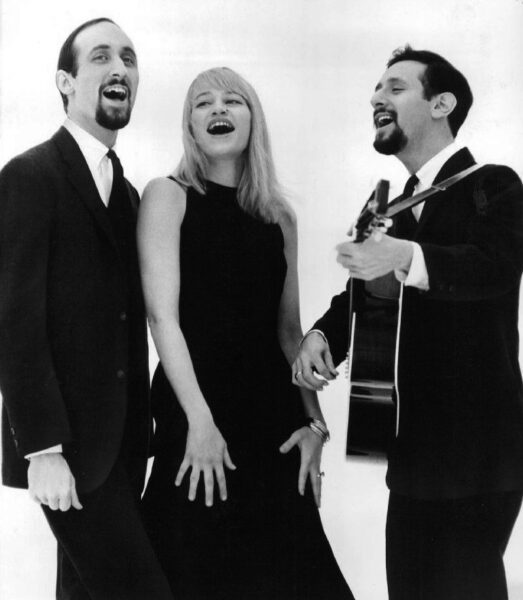
That’s right, folks, it gets censored, and that’s sort of the case with Puff The Magic Dragon. The song was deemed by a lot of Asian governments to contain references to illegal substance use and hence banned, even though its composers denied such allegations.
Brown Eyed Girl by Van Morrison
Back in the ’60s, many Americans weren’t the biggest on being the world’s “melting pot,” if you catch our drift. Maintaining the color lines was a big thing, so when Van Morrison released his song Brown Skin Girl, he quickly renamed it Brown Eyed Girl to avoid the pitchforks.
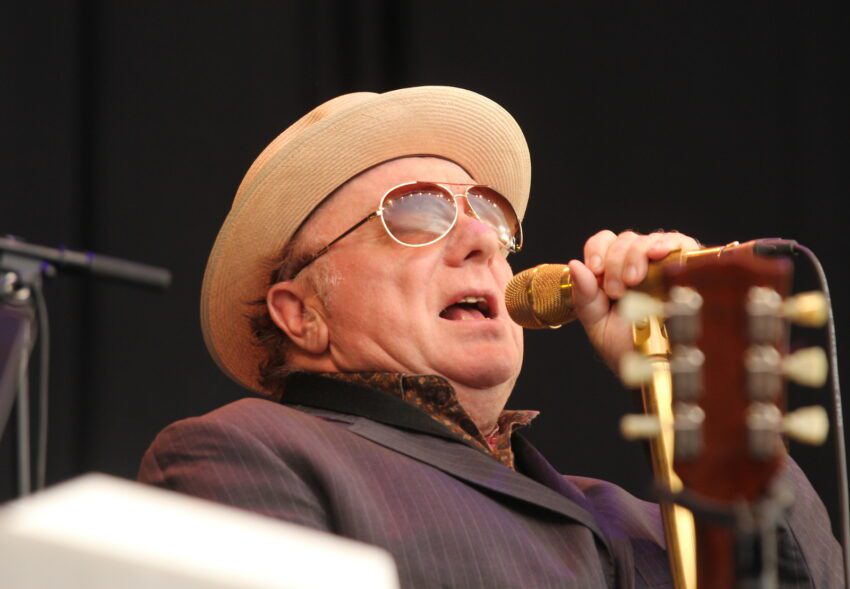
But it wasn’t just the title; people got their panties in a bunch over, oh no. It’s also the lyrics that our dear Van made the silly mistake of making too inappropriate for the time as he mentioned the devil’s tango.
(I Can’t Get No) Satisfaction by Rolling Stones
Name five other groups of people who’ve had more influence on the world of Rock N’ Roll than Rolling Stones did; we’ll wait. Can’t? Of course not; that’s because they were the main OG’s of the genre, so it’s no surprise a lot of their work might be heavily criticized.
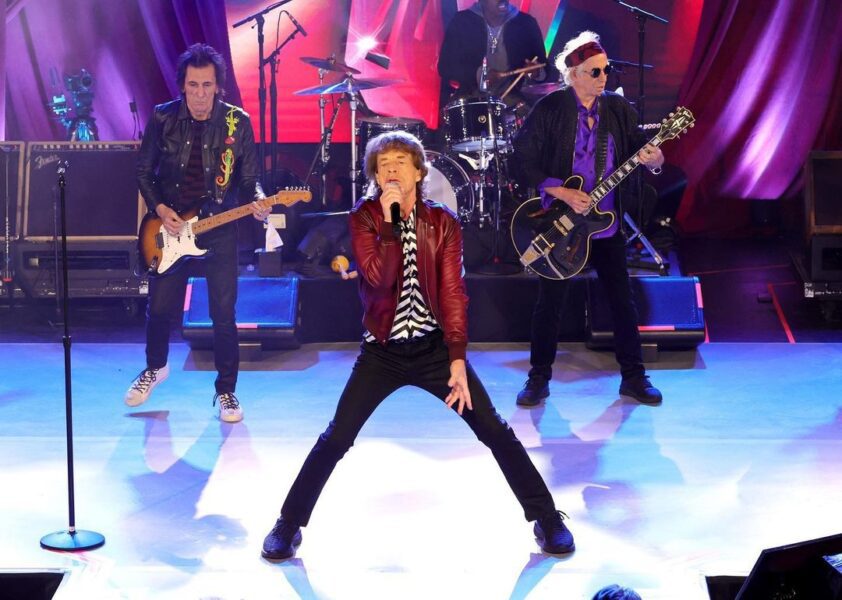
This particular song, (I Can’t Get No) Satisfaction, is often lauded as one hit that cemented their status as stars in the industry but was censored in the UK for being too sexually suggestive, only ever being aired on pirate radio stations for a while!
Baby, It’s Cold Outside by Frank Loesser
Who could have ever thought a holiday classic that’s even won an Academy Award would be deemed by loads of people as being offensive? And despite that, what we find even much more crazier is the reason why that is.
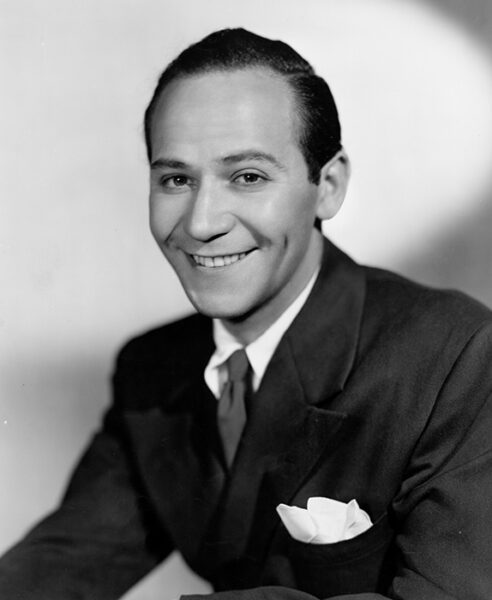
Many listeners think the song is manipulative as it’s about a man who urges his girl to stay over at his place despite her wanting to go back home. We’re not sure how people managed to make the track something to get riled over, and it’s quite a shame the composer is no longer around to weigh in on the issue.
In The Air Tonight by Phil Collins
Many songs that have been censored have had that done to them just once. Phil Collins’ 1981 hit track didn’t have that privilege as it was banned not just once but on two separate occasions! How crazy must that have been?
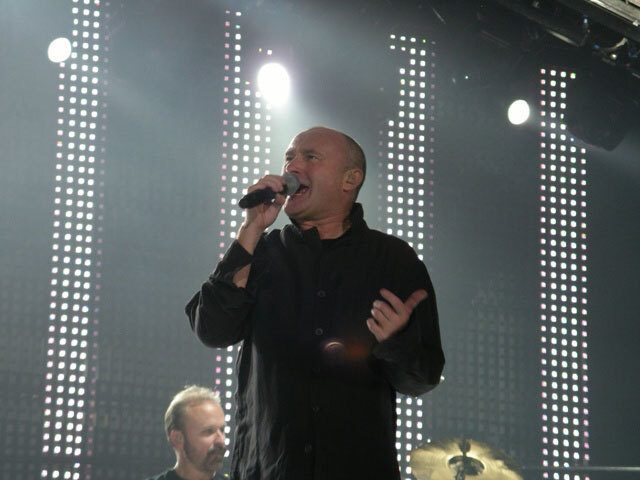
At first, people thought it was somewhat connected to the Gulf War and had it censored, and then it got stomped on even further when folks thought it was related to the 9/11 attacks. It’s pretty tragic if you ask us, seeing as it’s got a dope drum solo.
Red Nation by The Game
A lot of artists use music as a means of expression. In fact, that’s mostly what the form of art is all about. They can use it to tell the world about their wants, needs, wishes and, what they are like, what they belong to.
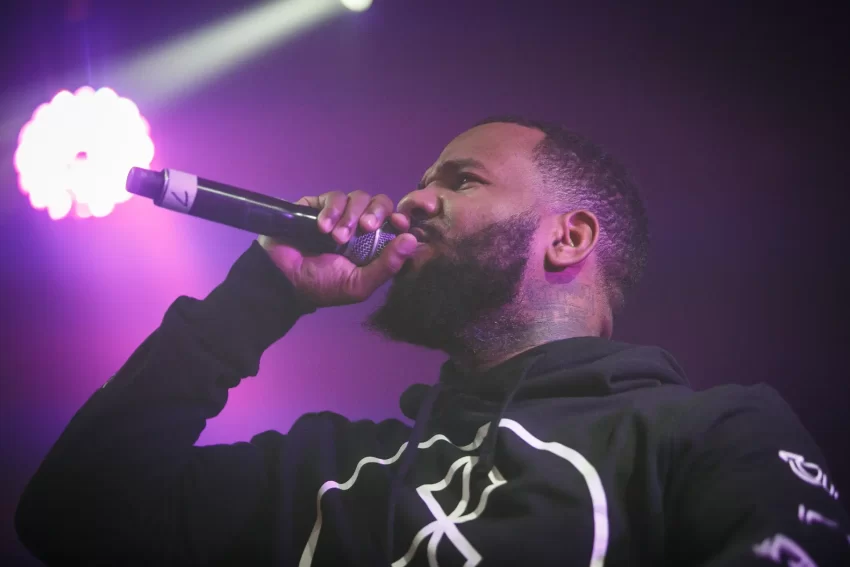
For The Game, many people believed that was gang life leading to his hit song, Red Nation, being banned because of many references to it. Whether people felt like he was promoting it or not doesn’t matter because the ban didn’t do much to stop its popularity.
Ding Dong The Witch Is Dead by The Wizard Of Oz
Sometimes, these songs get censored for reasons beyond the artist’s fault. We know that might be hard to believe but stay with us here. The musicians are to blame for the stuff they put out there but not for how their work is used.
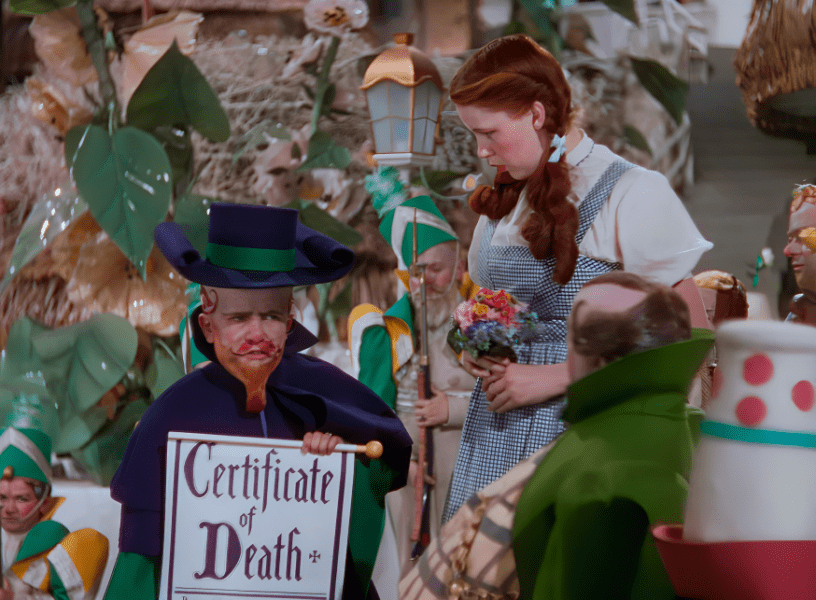
This Wizard Of Oz song was about celebrating liberation from a menace and is from an old-time classic. After the death of the UK’s ex-prime minister, Magaret Thatcher, the song gained a newfound popularity, topping the charts. Although it didn’t reference her in any way (as it was made long before she was a politician), it was clear who it was all about, hence BBC’s ban.
Light My Fire by The Doors
Many of these songs were banned simply because people looked too deeply into the lyrics and tried to find references to inappropriate stuff in the artists’ words, which we think is super unfair. Take Light My Fire by The Doors, for instance.
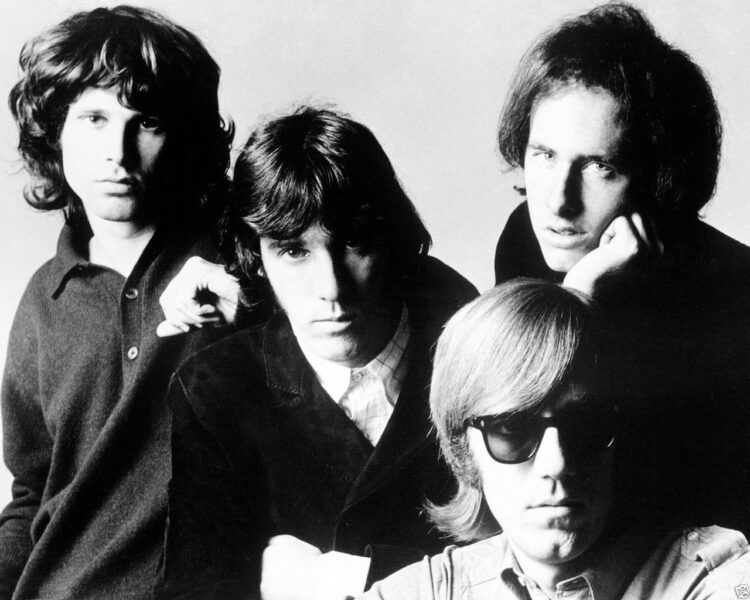
The sole reason behind this song’s censorship was the fact that people found a single line unsuitable, the one where he says, “Girl, we couldn’t get much higher,” claiming it was a reference to the use of narcotics like it’s only those you could get high on.
Louie Louie by The Kingsmen
A lot of these songs have faced censorship from the government, but none of them so far have had the freaking FBI look into them! We kid you not; they got one of America’s most intense organizations conducting an investigation on some song’s lyrics.
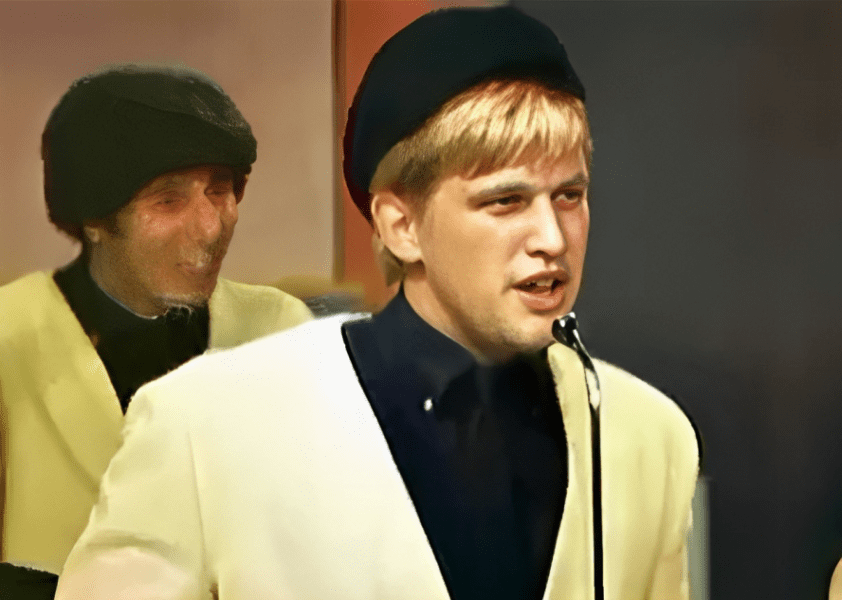
The Governor of Indiana took the song personally, calling it highly inappropriate and provocative, beginning the whole federal case surrounding it. They thought allowing it would permit the growth of moral degradation in America. We wonder what they’d think if they were around today.
I Saw Mommy Kissing Santa Claus by Jimmy Boyd
Christmas is like the world’s favorite holiday; many people don’t take it too lightly when you mess with its meaning. Take it from us, but if you need proof, look no further than the 1950 hit by little Jimmy Boyd, I Saw Mommy Kissing Santa Claus.
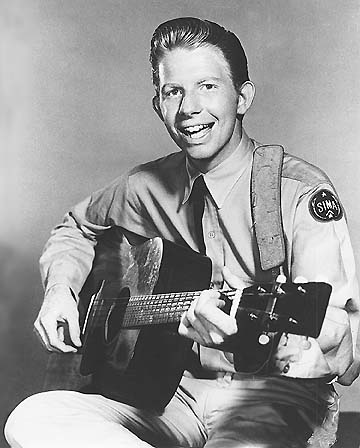
Right off the bat, we’re guessing you could see why people were fuming at the song. If you don’t, here’s the deal: the Catholic church in Boston felt like it was alluding to adultery and said it contained suggestive language. Poor guy had to plead his case with them before it was pulled from the ban.
Love To Love You Baby By Donna Summer
You don’t get to the top of a genre of music without stepping on the public’s toes and doing one controversial thing or another. For many, it’s even what helps to catapult them to that status, one of them being the Queen of Disco, Donna Summer.
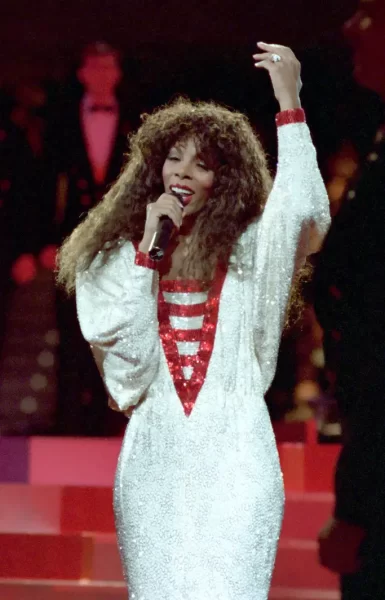
The five-time Grammy award winner is a certified legend in the industry but once had one of her songs to be the subject of controversy. The 70’s hit Love to Love You Baby was under fire for being too raunchy. Donna didn’t deny this, even regretting it was one of her first biggest hits, helping her shape her image as an artist.
Walk Like An Egyptian by The Bangles
After going this far in this article, it should be pretty clear that many people love to draw parallels between music and world disasters. And we thought the insane connection people made to “… blow up like the World Trade” was bad; this one is even worse.
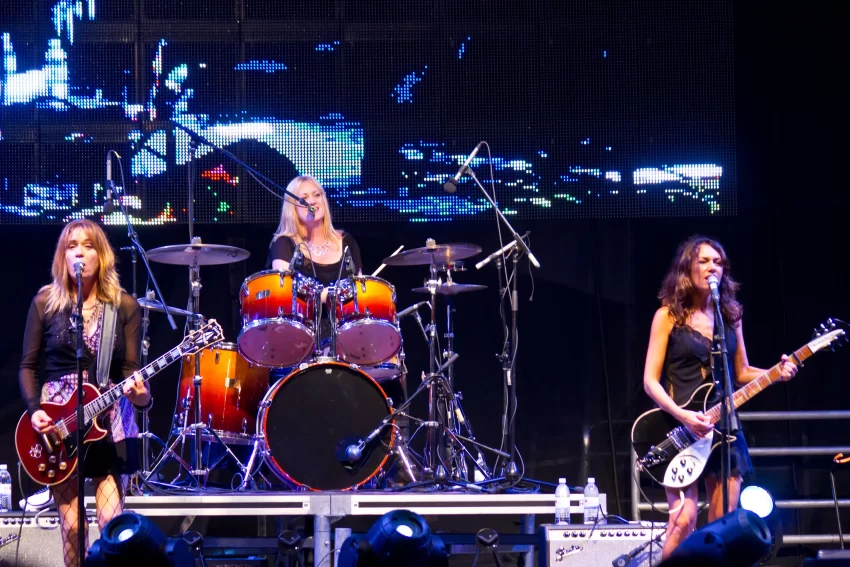
This song was banned not once, but twice actually, the first time being in the early nineties and the second time in 2001. It was first censored because of the Gulf War and then because of the 9/11 attacks.
Johnny Remember Me by John Leyton
Not sure what he really thought, but we feel it must have sucked big time that the BBC banned the first and only number-one hit by the singer John Leyton. It tells the tale of a guy who’s haunted by his demised lover, and that didn’t sit right with the corporation.

They call it a death disc, and to the BBC of the time, it wasn’t the kind of music they were very willing to air. So, Johnny Remember Me was banned alongside many other death discs that were released at that time.
Wake Up Little Susie by The Everly Brothers
It seems like people might have been a bit too imaginative sometime in the fifties, and this song is one of the reasons we’re saying so. It’s pretty unclear to us how people could make the most absurd assumptions from the most innocent of things, and here’s an instance of what we mean.
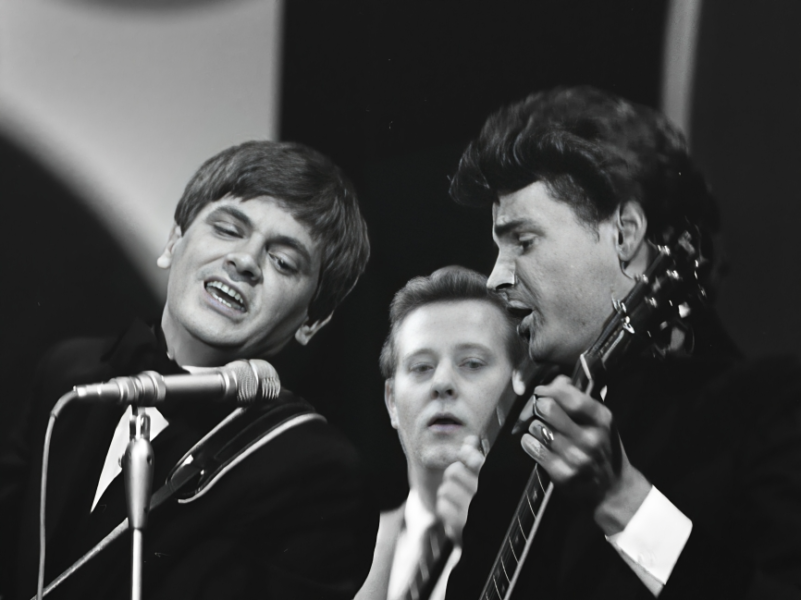
The Roman Catholic Church in Boston struck again when they flagged this song about teenagers in a relationship who fall asleep together and don’t wake up till the early hours of the morning. Saying the song was vague about what happened between the two before they caught some zzz’s, they decided to pick a bone with it.
Rolling In The Deep By Adele
We can pretty much tell why most of the songs on this list have either been banned or censored. Most of the reasons are pretty clear-cut when you examine the songs on the surface, but this one hit by Adele? Not so much.
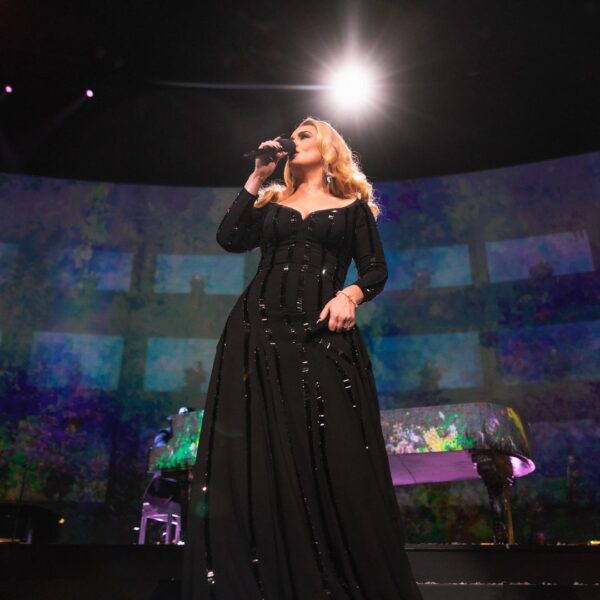
Never have we ever seen a song get censored because of ambiguity. Apparently, many stations just thought the lyrics Adele used sounded expletive and censored them because of that. Although she swore at a point in the song, Adele covers it by using the word “stuff” instead during performances.
Blurred Lines by Robin Thicke
One of the most controversial songs in all of the 2010s, Robin Thicke’s Blurred Lines, is worthy of a mention. The original music video even got pulled from YouTube (yep, even YouTube got mad) because it featured some pretty provocative content.
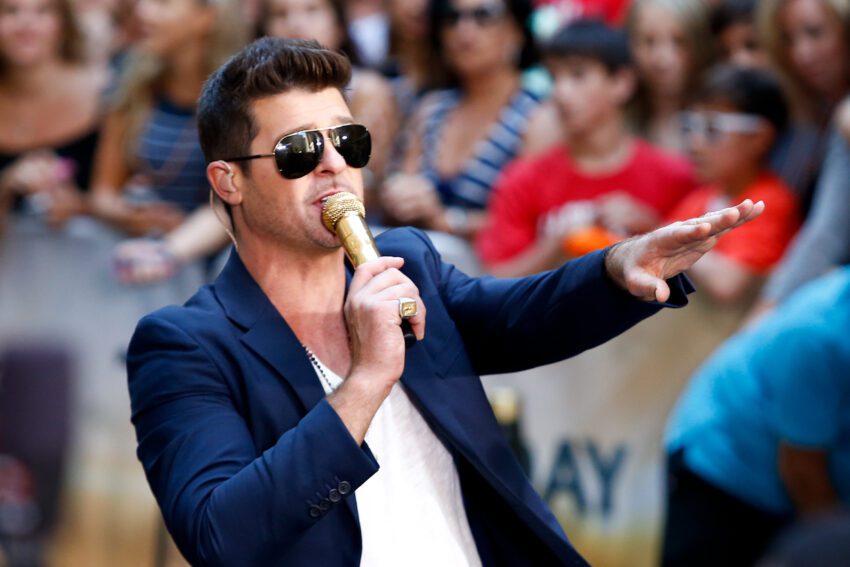
It was also banned from being played in many universities because of the lyrics. Then came the copyright claims by Marvin Gaye’s family, as they believed it was a rip-off version of one of the legend’s hits. The song still topped the charts, but oh boy, was that some hassle for just one song!
My Generation by The Who
Sometimes, simple effects can make all the difference in making a song incredible and creating a hit. It could be a cool guitar solo, a dope riff, or a catchy chorus. For My Generation by The Who, it was the stuttering they employed.
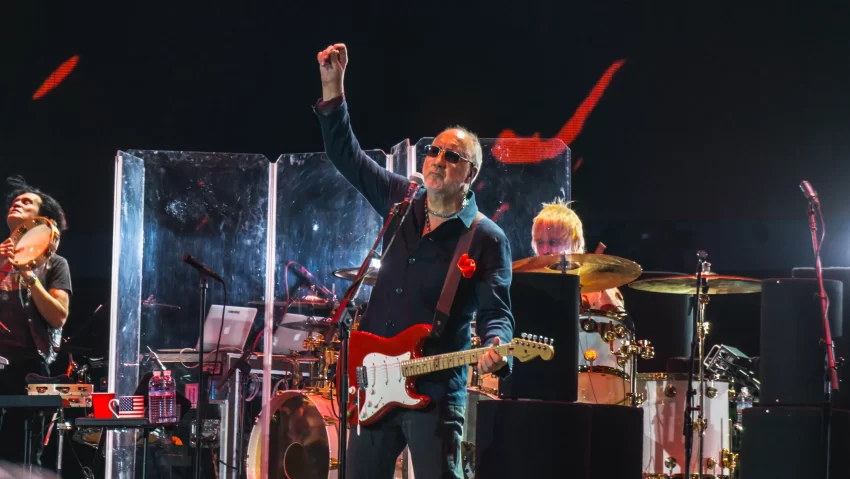
Many people would expect the fact it was a rebellious anthem for younger folks to be the reason behind its censorship, but nope. People went up in arms because of the stammering they thought was offensive to people with the condition.
Splish Splash by Bobby Darin
Nothing is more powerful than the imagination. Sometimes, it could even double as real life, which we think was what the viewers probably felt when they banned this novelty rock song by Bobby Darin sometime in the fifties.
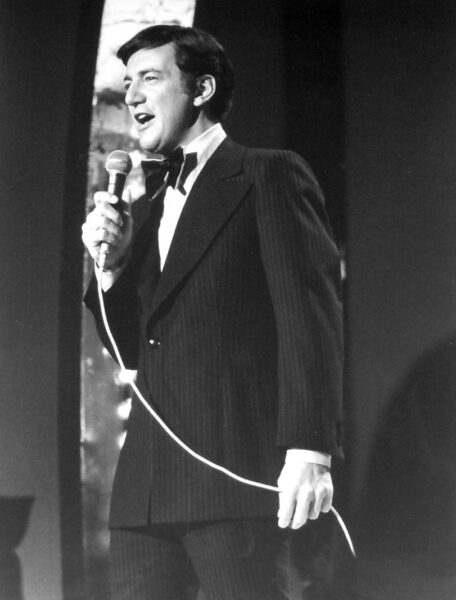
So here’s the deal: man takes a bath, gets out of the tub, then goes into another room before wrapping himself in a towel. It sounds crazy, but radio banned the song because they felt it conjured images of the composer nude. Nevertheless, it was still a hit song and one of the most memorable from the artist.
Will You Still Love Me Tomorrow by The Shirelles
It can be a great career boost for anyone when their song hits the top spot on the chart, but with great success comes loads of criticism. People are always eager to poke holes in popular works, and Will You Love Me Tomorrow by The Shirelles was one such song.
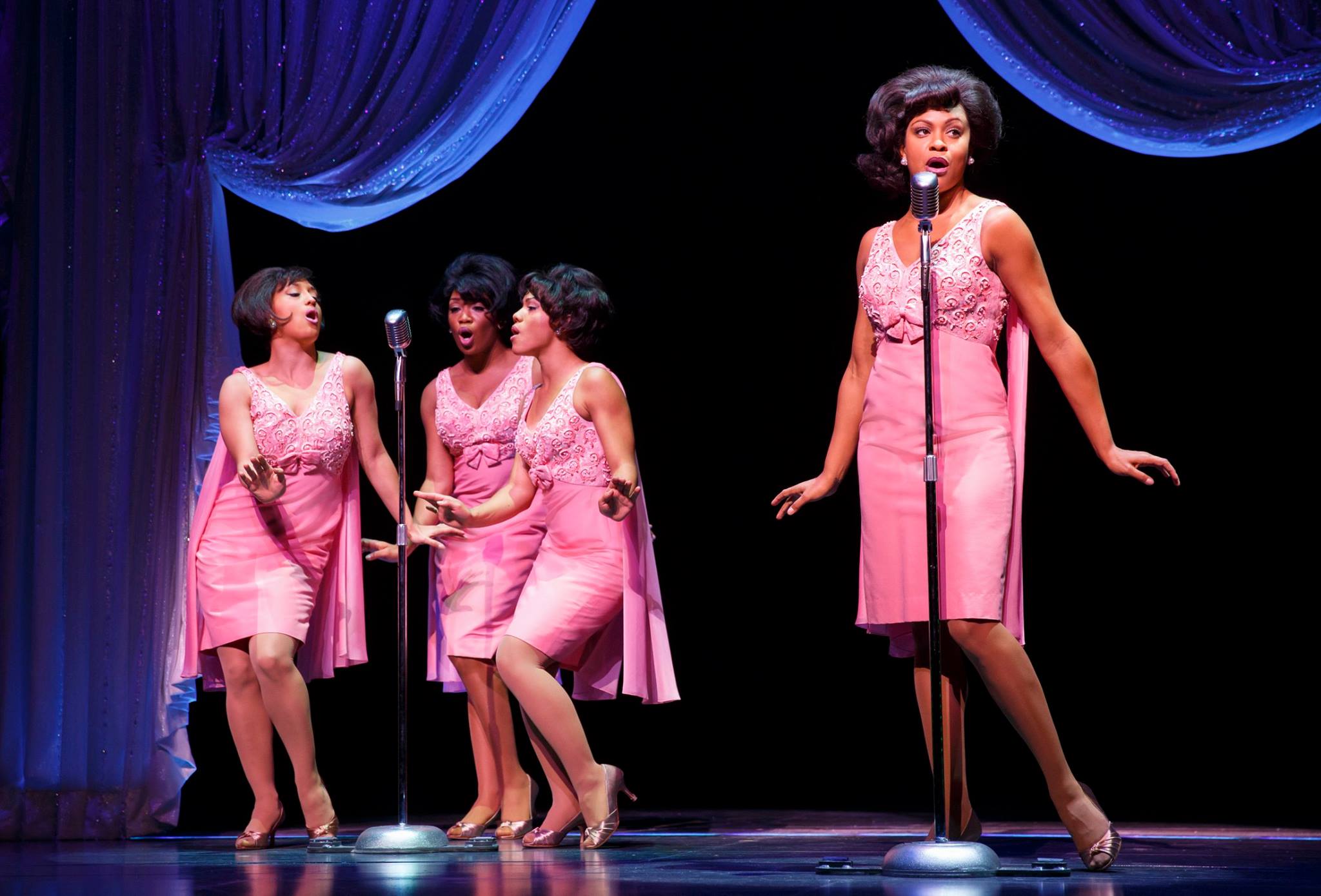
The first to top the chart by a black female group was about a woman who had an intimate night with a man and was the subject of some controversy in the 1960s. People thought the subject matter was inappropriate, so they had it censored.
Atomic by Blondie
We can never tell what could trigger people, so it’s just more convenient to censor stuff instead to avoid all kinds of outrage that may come. That was BBC’s thought process (we’re guessing) when they banned Atomic by Blondie, the American rock band led by singer Debbie Harry.
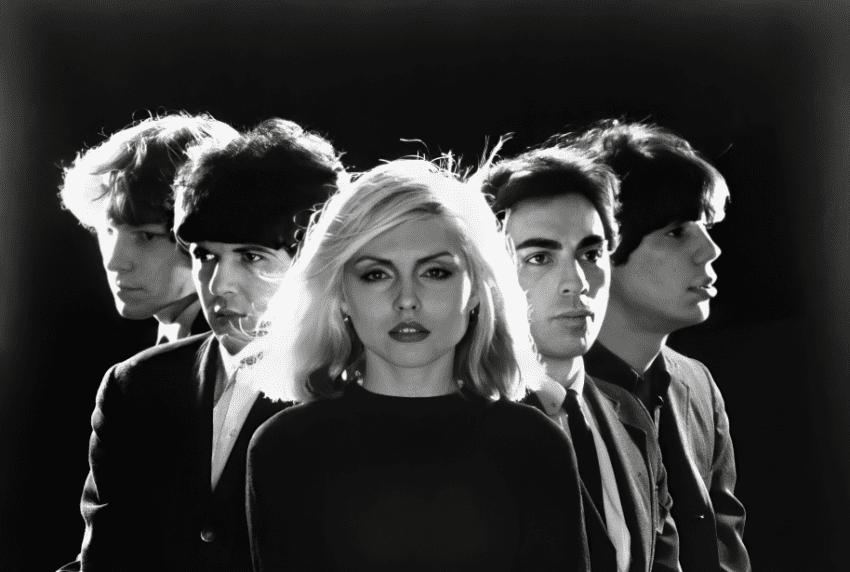
The reason it was banned was not crass or provocative lyrics or the music video insulting a group of people. It’s because of one reason and one reason alone: the song contained the word “atomic,” which wasn’t very appropriate to use during the Gulf War.
Royals by Lorde
The 2013 pop hit by the New Zealand star wouldn’t have been the most pleasing thing to the ears of San Francisco’s radio stations’ listeners as their baseball team would be going up against Kansas City Royals (get it?) soon.
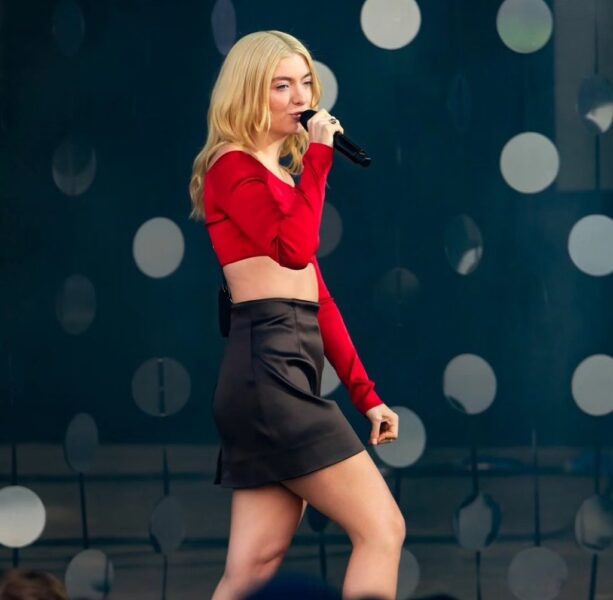
It was Kansas’ unofficial anthem and went against the San Francisco Giants so much that they didn’t want to give it airtime until after that year’s World Series. Forget the government; sports fans are another force to be reckoned with on their own.
I Love A Man In Uniform by Gang Of Four
And the BBC strikes again! We’re not trying to be judgy; we’re sure the concerns behind their actions were legitimate and all that, but c’mon, guys. The BBC banned it because this one references men doing some kind of service.
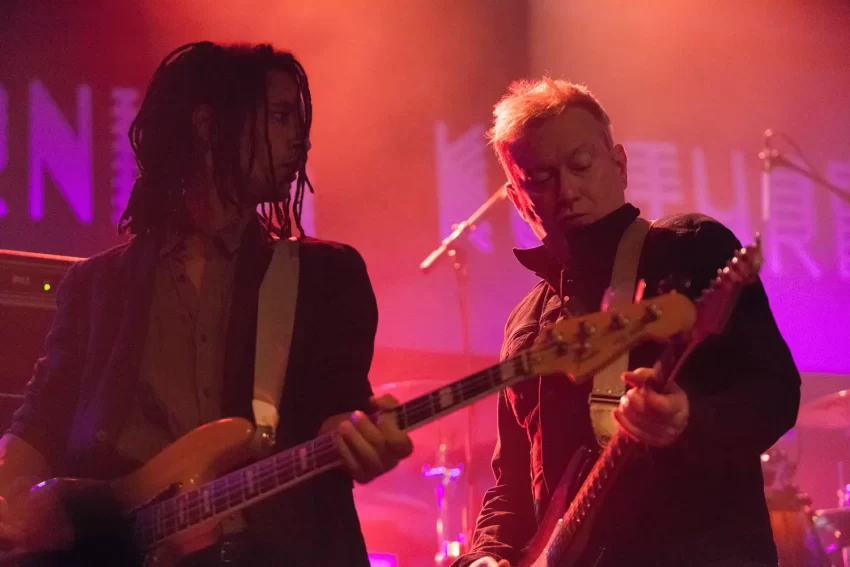
Britain’s troops were entering the Falklands War when it was climbing up the charts, and then the BBC hit them with some red tape. This was the second time the British post-pop band was banned. The first time was in 1979 for another track.
Rumble by Link Wray & His Ray Men
Many singers and bands have songs that make history for one good reason or another, most times at least. Other times, it’s because of something monumental that might not necessarily be positive to the artists themselves. Such was the case with Link Wray and His Ray Men.
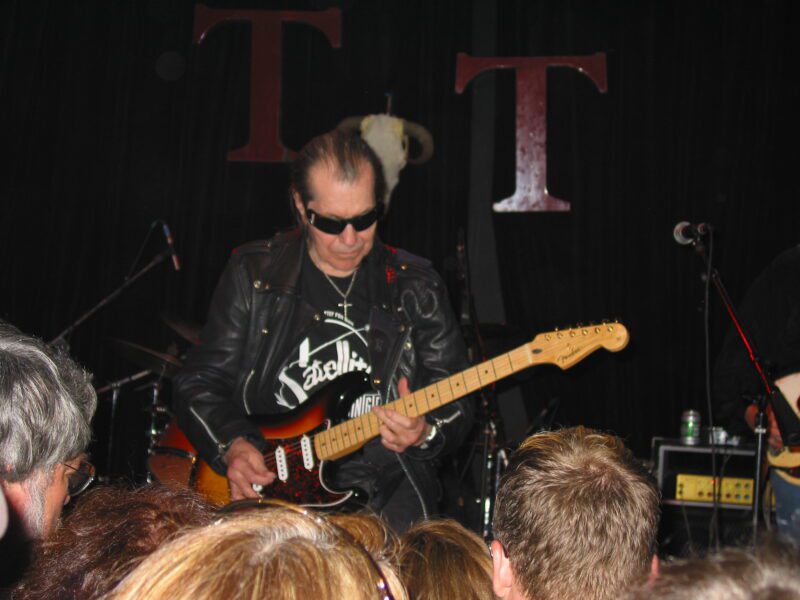
Rumble was the first and the only instrumental single banned from being aired on US radios for the most absurd reason, and that’s its title. Seeing as rumble is a slang term for a gang brawl, authorities quickly had this one sidelined in fears it would, and we quote, “incite violence.” Yeah, an instrumental would make people go wild and start throwing fists.
Wham! Bam! Thank You, Ma’am by Dean Martin
This one should be fairly obvious as to why a ban was once imposed. That is only if you understand the message behind the song and relate it to the title. Otherwise, you wouldn’t really get why anyone would deem this song inappropriate.
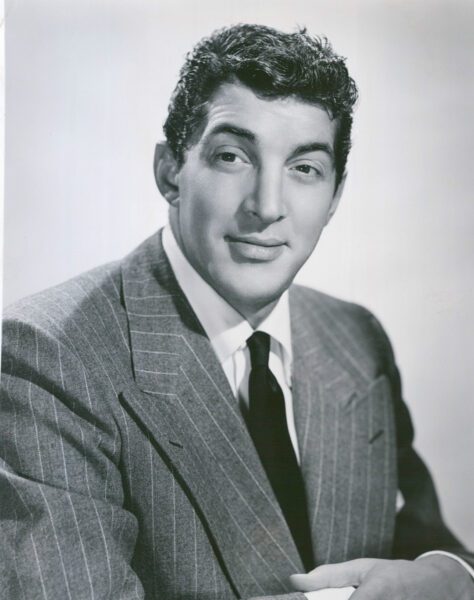
The song is about a bitter, jilted lover who got laid and was abandoned by his female counterpart. The “Wham! Bam!” part suggests their intimate but short-lived encounter, and listeners thought it was super offensive to ladies, so bam! It got banned.
God Only Knows by The Beach Boys
At this point, it’s safe to say American and British radio stations in the fifties as well as in the sixties were nothing but trigger-happy, banning just about every single song that didn’t sit right with them for any little reason, and even The Beach Boys weren’t exempted.
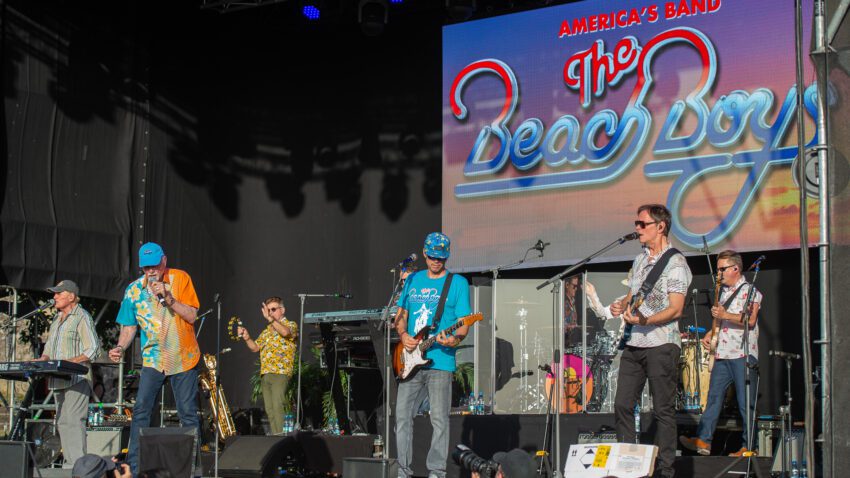
The highly successful group was known for their smashing hits, but it seems like some listeners didn’t find them as melodic as others did, and for the silliest reasons. This song was censored from the ears of radio listeners in the Southern regions of the US in the 60’s because its title contained the word “God,” and folk didn’t take too kindly to that.
Mambo Italiano by Rosemary Clooney
You know a song has hit it big when it tops the charts, appears on the soundtrack of many movies, and gets covered a number of times, which was the exact case with Rosemary Clooney’s 1954 hit, Mambo Italiano. Written by Bob Merrill, it reached the Top Ten in France and the US.

The song was composed hastily, and the lyrics were scribbled onto a napkin while dining at an Italian restaurant. We say kudos to the guy for his creativity, but many people disagree, claiming some of the lyrics were too “suggestive” and whatnot.
Take The Power Back by Rage Against The Machine
So far, so good; most of these songs were censored or banned just a little while after their release. It didn’t take much time for people to start making all sorts of deductions and have the songs sort of outlawed, except in this case.
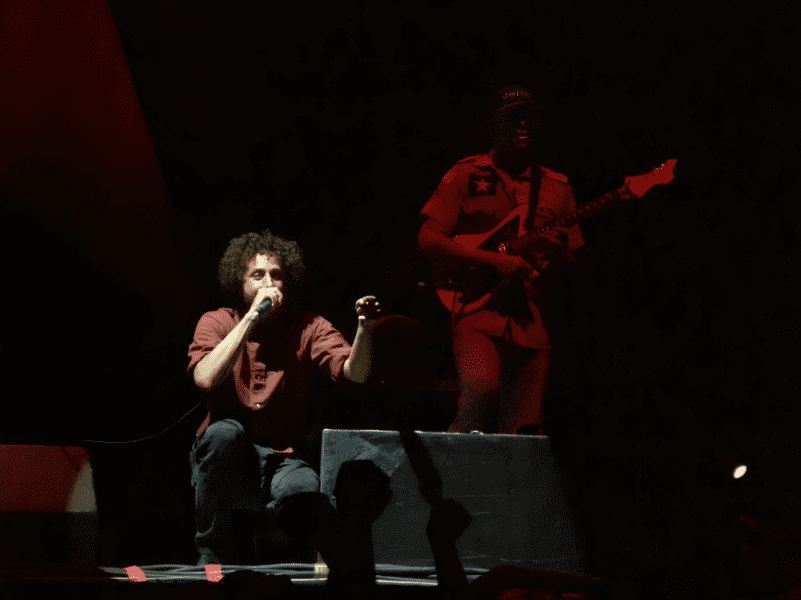
Decades after Take The Power Back was released, the state of Arizona thought the song’s lyrics promoted the overthrow of the US government and that it was totally not cool to do so. Remember what we said about not messing with those guys? Message reaffirmed.
If U Seek Amy by Britney Spears
The use of profanities is a long-running theme in music, and some genres can almost barely do without any. We’ve gotten pretty much used to them and just wave them off despite how noticeable they are, but sometimes, not so much.
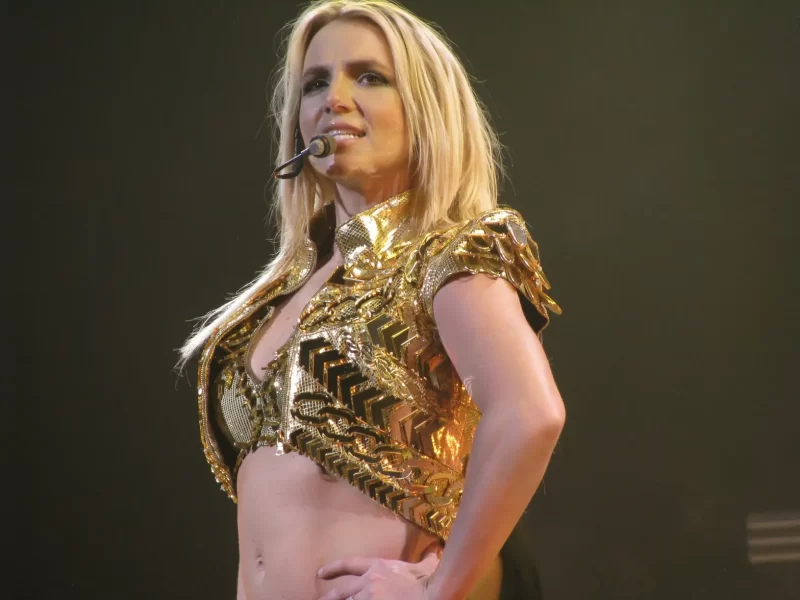
Hearing the name of this song, many people won’t think twice about it. But, upon closer inspection, it seems the title is actually some sort of invitation to do the dreaded devil’s tango. Parents felt it indecent and not suitable for the ears of their little ones, so into the bin it went.
It Would Be So Nice by Pink Floyd
One of the earliest British psychedelic groups and most popular English rock bands, Pink Floyd, has impacted the industry. Although their music doesn’t sound like stuff that could be censored, the BBC always has a reason, and this time, it isn’t even that bad.
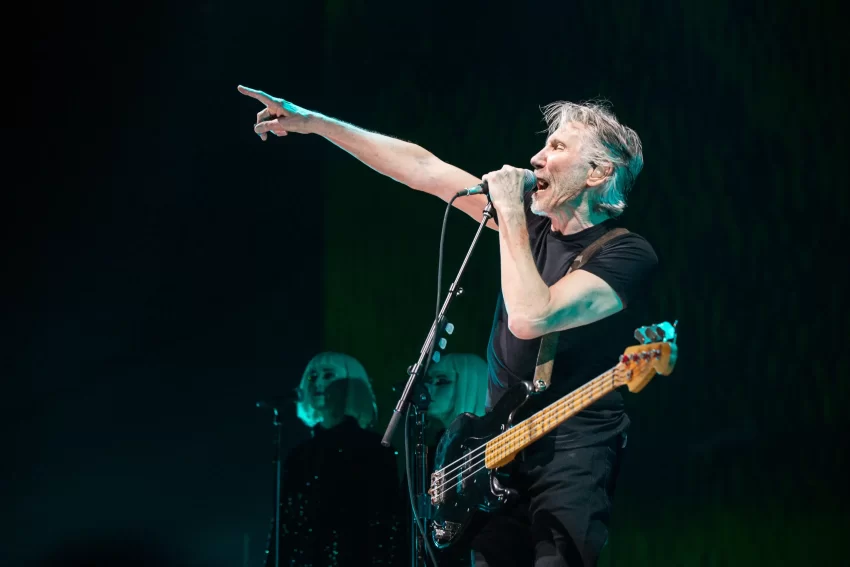
Their track It Would Be So Nice has absolutely wrong with it as per broadcasting guidelines at a glance, but upon closer inspection, BBC found something that didn’t quite check out. The song references the London newspaper, which goes against their very strict no-advertising policy.
God Save The Queen by The Sex Pistols
We know what you’re probably thinking the reason for this ban was, but you couldn’t be any more wrong. No, it wasn’t about mentioning a deity that offended the religious, nor was it referencing the UK’s monarchy.
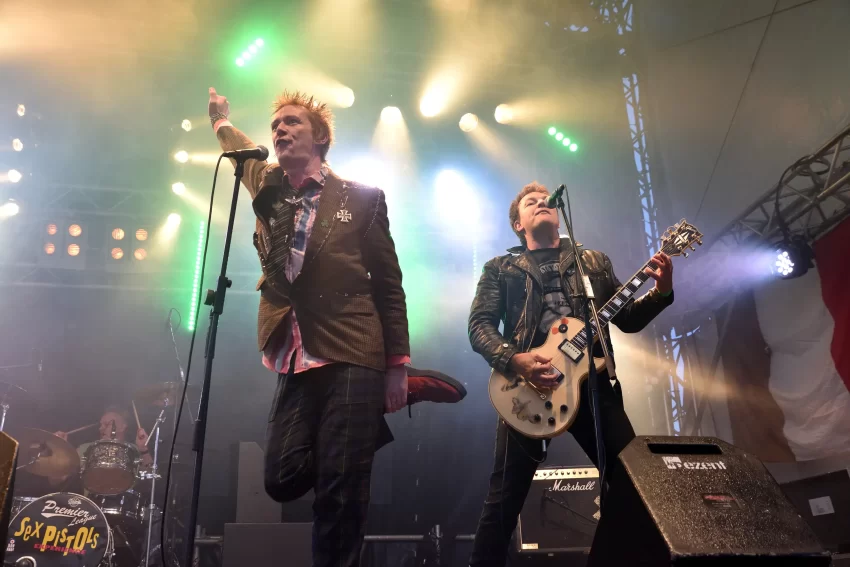
The hit song by the English pop rock band The Sex Pistols was their second single and topped the charts despite all the controversy surrounding it. The band took a dig at their country’s government, critiquing it, which was basically taboo, and earned themselves a spot on their ban list.
You Don’t Know How It Feels by Tom Petty
We know we joke a lot, but we aren’t fooling around when we say the censorship of this song taught us a very valuable life lesson. It was released on the artist’s 1994 album and even made some waves, topping a chart, but was censored by VH1 and even MTV.
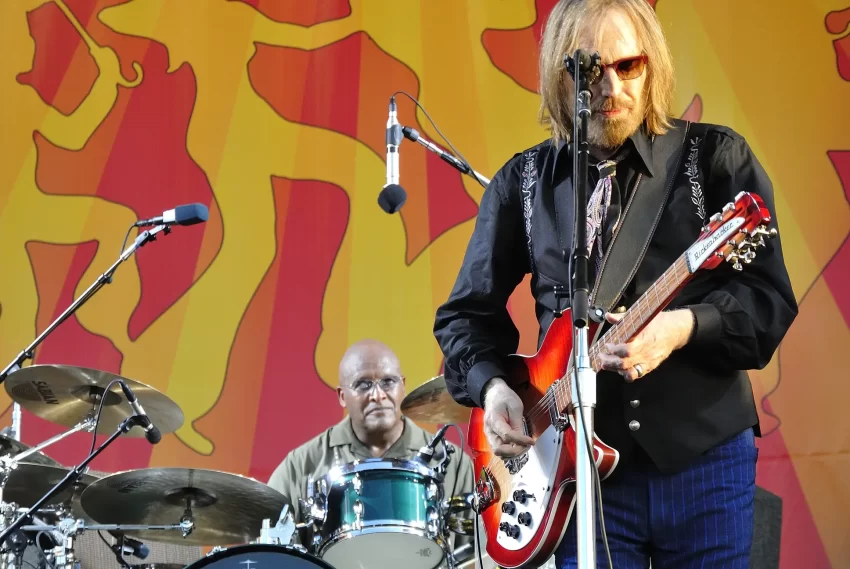
Even though Tom Petty and MTV were basically besties (as he was one of their biggest artists), they wouldn’t air the video to this song as it was because of the drug references. Moral lesson of the day: even your biggest supporters might not accept you as you are; only you can truly love yourself. Peace.
Pink Venom by BLACKPINK
Gasp! Oh no! Even K-pop artists, with their super original songs and unique music style, are also being hit with some kind of censorship. We can’t say much about the genre, but we do know that they usually stay in line and don’t like to cause trouble.

That’s why the fact that their song was censored shocked us at first. But it kind of made some sense when we examined it closer. The song violated Korean broadcasting law as it named the product brand, so it was banned. Not a biggie, but rules are rules.
